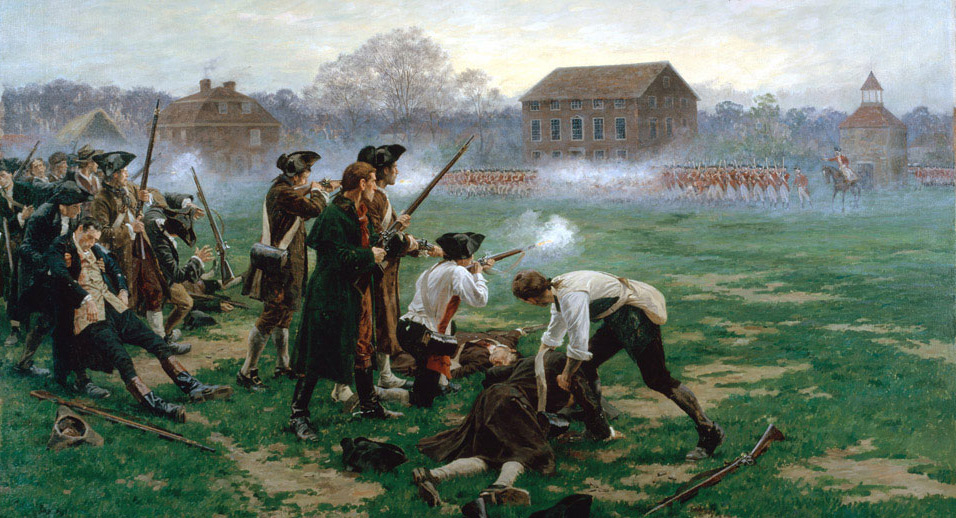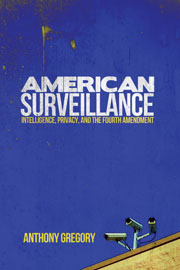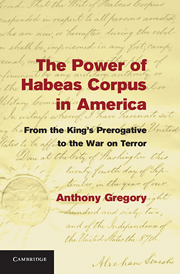April 19 is Patriots’ Day, but the occasion is seldom celebrated. The first battles of the American Revolution occurred on that day in 1775 at Lexington and Concord. The war of independence from Great Britain gave life to such principles as the rights to life, liberty and the pursuit of happiness, and the right to overthrow and secede from governments guilty of “a long train of abuses and usurpations,” as the Declaration of Independence says.
The importance of April 19 in signifying the clash between self-determination and empire does not end with Lexington and Concord. On April 19, 1810, Venezuelans expelled Spanish general Vicente Emparan and asserted self-rule in Caracas. On April 19, 1936, Arabs rose up against British colonialism in Palestine. The largest uprising against the Nazi Holocaust began exactly seven years later, when Jews in Poland’s Warsaw Ghetto heroically resisted German attempts to send them to Treblinka and other death camps.
On April 19, 1960, South Korean students began nationwide protests, eventually resulting in President Syngman Rhee’s resignation. Exactly one year later, the U.S. lost its Bay of Pigs invasion to the Cubans. April 19, 1993, was the last day of the FBI’s violent siege near Waco, Texas, culminating in a fire that killed seventy-four members of the Branch Davidian church, about two dozen of them children—the largest civilian death toll at the hands of the federal government since Wounded Knee.
These events did not all result in a lasting victory for liberty. And the lessons from Waco about the dangers of government have since been obscured by the Oklahoma City Bombing precisely two years later, so that on April 19 Americans more likely think of anti-government terrorism than state violence against the innocent.
But April 19 should remind us that government’s control over a territory ultimately relies on the threat of force. As Mao said, “Political power grows out of the barrel of a gun.” As Gandhi put it: “The State represents violence in a concentrated and organized form.”
The colonists at Lexington and Concord realized this and thus wanted state power localized and restrained, so they took up arms against and risked their lives to defend liberty against their own government. Today, America needs not bloodshed, but peaceful revolution. Yet what faction upholds the principles of 1775?
The Tea Parties claim the legacy of the American Revolution, but according to polls they favor George W. Bush and U.S. wars even more than the general population. Most believe the United States, as the “leader of the free world,” is a benevolent force abroad.
This was precisely the British empire’s stance. England was the home of Magna Carta and the Glorious Revolution—yet its foreign policy reeked of hypocrisy, as the American colonists discovered. The Founders were especially adamant about restraining militarism, eschewing permanent alliances, and maintaining peace and non-intervention—Madison, Jefferson, and Washington knew that empire turned a free people into hypocrites and meanwhile eroded their liberty.
Mainstream Republicans are as contradictory as the Tea Parties and King George. They hate Obama, call him a tyrant and oppose his deficit spending and power grabs. Simultaneously, they defend his executive detentions, the expansive war in Afghanistan and the broad executive powers claimed in the war on terror. Republicans support the war with Libya—started without congressional approval—even more than Obama’s own party. America’s modern policy of perpetual war runs against all the great principles of Patriots’ Day. What’s more, Republicans claim small-government principles but propose spending cuts so infinitesimal as to have no real effect on the deficit.
The Democrats, on the other hand, completely reject the ideals of Patriots’ Day. They champion an ever-growing central state with control over virtually all of economic life. They are about as eager as Republicans to support presidential wars, government intrusion into our personal lives, and wartime excuses for violating liberty.
On April 19 let’s reflect on the eternal struggle between liberty and power, self-government and empire. The state is, in the end, an institution of force, which is why our revolutionary predecessors fought to resist it. Normal Americans embrace the credo of liberty in their daily lives. But in our political leadership, the spirit of Lexington and Concord is nowhere to be found. Unless you count the Redcoats.









